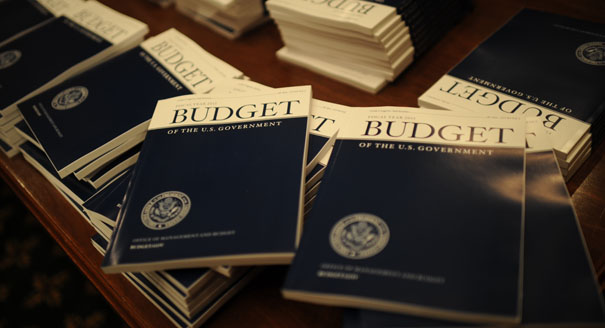It’s time for President Obama’s 2016 budget proposal – and, most importantly, it’s time to reflect on the numerous items that affect payroll and payroll departments. You may notice a few familiar topics, and there is some ongoing concern that these items could pass if they continue to be proposed.
Here are the proposals that would have the greatest direct impact on payroll professionals.
Reduce electronic filing threshold. The current threshold for filing electronic W-2/W-3 is 250. This proposal would reduce the threshold to five.
Quarterly Form W-2 reporting. Here, the president is reintroducing the idea of quarterly W-2s. In other words, year-end times four. The administration also declares that it would work with states to ensure the overall reporting burden on employers is not increased.
Move up information return filing deadlines. An interesting twist (and somewhat in opposition to the above proposal) is a proposal that would move up the deadlines for filing Forms W-2 and 1099 with the Social Security Administration and the IRS-from the end of February or March for electronically filed returns to January 31 (all returns, paper or electronic).
Truncated SSN on W-2 forms. This is a repeat item. There is a proposal in the budget that would allow employers to use an “identifying number,” rather than an employee’s SSN, on W-2s. With this revision, the IRS would permit the use of a truncated SSN on Form W-2. Interestingly, due to the identity theft laws in most states, the employee social security number is masked on most all documents, including pay stubs. The one place employees could reference which social security number the employer was using was in the annual W-2. There would need to be some way for employers to confirm with employees that they are using correct social security numbers, outside of W-2s. This item may have a good chance of passing, since 1099s are already masked.
Contractors must provide certified TIN. Another recurring item. Companies that use independent contractors are required to have a W-9 on file, in order to pay the contractors. This proposal would require a contractor who receives payments of $600 or more in a calendar year to produce a certified taxpayer identification number (TIN) to the business. The business would then be required to verify the contractor’s TIN with the IRS (via an online tool), similar to new hire reporting for independent contractors. This TIN would be used to match the IRS records for the independent contractor. The business would also be required to withhold a flat-rate percentage from gross payments if the W-9 is not produced and successfully matched to the IRS records.
Require employer contributions to defined contribution plans to be reported on Form W-2. This may be tricky as some contributions are made to former employees and a W-2 would need to be produced for people who are essentially non-employees.
Restore FUTA surtax. This is a repeat item. For many years, the federal unemployment tax (FUTA) surtax (0.2%) was formerly part of the 6.2% gross unemployment tax rate that employers paid on the first $7,000 of wages paid annually to each employee (6% permanent tax rate, 0.2% temporary surtax). The surtax was repealed on June 30, 2011. A proposal in the budget would permanently reinstate the 0.2% FUTA surtax.
Revise unemployment tax computation. This is also a repeat item that intends to increase the federal taxable wage base from $7,000 to $40,000 in 2017. The increase in the taxable wage base would be offset by a decrease in the net FUTA tax rate, which would be lowered from 0.8% to 0.165%. The issue? For states to receive full FUTA credit, the state must have a SUTA wage base equal to or exceeding federal wage base. With the reduction in FUTA percentage, it is possible the FUTA credit will become irrelevant-but that remains to be seen.
Repeal FICA income tip credit. This item will be a sore point for restaurants, in particular. A proposal in the budget would repeal the commonly known FICA tip credit that employers receive on tips in excess of minimum wage.
Automatic IRAs. The budget proposes automatic payroll deduction for IRAs. With automatic IRAs, employers who do not offer a retirement plan would be required to enroll their employees in direct-deposit IRAs. Employers that sponsor a retirement plan but exclude certain populations (such as all employees of a division or subsidiary) from eligibility would be required to facilitate automatic IRAs for the excluded employees. Also, employees who do not opt-out of the arrangement would be automatically enrolled. Default contributions would be 3% of compensation and would be contributed automatically to a Roth IRA, but employees could choose traditional IRAs or different contribution amounts.
Expand coverage for part-time workers. Employees would be allowed to contribute to an employer-sponsored 401(k) plan if they work 500 or more hours per year for at least three consecutive years. The proposal would not require employer contributions; however, the employee would receive a year of vesting credit for each year in which the employee worked at least 500 hours.
Keep in mind that proposals are just that: proposals. Many items will be reviewed and changed as time goes on, and I will continue to report on updates in the future.
——————
James Paille CPP is the Director of Operations for Thomson Reuters myPay Solutions. He has been an executive manager in the payroll service industry for more than 30 years, specializing in managing multi-location offices. Jim is a member of the APA’s Board of Directors and National Speakers Bureau, and chairs the CPP Certification Review Panel. He holds a Bachelor of Science in Accounting from St. John Fisher College in Rochester, NY.
Thanks for reading CPA Practice Advisor!
Subscribe Already registered? Log In
Need more information? Read the FAQs
Tags: Payroll, Payroll Software




